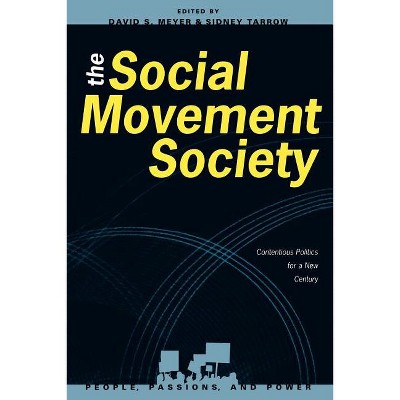Social Robots - (Philosophy, Technology and Society) by Paula Sweeney (Hardcover)

About this item
Highlights
- Social robots that engage with humans elicit an emotional and social response that raises the question of whether robots deserve moral consideration.
- About the Author: Paula Sweeney is senior lecturer at the University of Aberdeen.
- 152 Pages
- Philosophy, Social
- Series Name: Philosophy, Technology and Society
Description
About the Book
Social robots that engage with humans elicit an emotional and social response that raises the question of whether robots deserve moral consideration. Sweeney's fictional dualism model is a distinctive and ethically appropriate framework for emotional engagement without moral c...Book Synopsis
Social robots that engage with humans elicit an emotional and social response that raises the question of whether robots deserve moral consideration. Sweeney's fictional dualism model is a distinctive and ethically appropriate framework for emotional engagement without moral consideration, while providing conditions for trusting social robots.
Review Quotes
In times when social robots invite emotional and social responses, it is important to reflect on the ethical questions this raises. With her fictional dualism model, Paula Sweeney distinguishes between robots as technological objects and their fictional overlays. In this way, she aims to seriously analyze our tendency to anthropomorphize with robots and the role of fiction in this, without arguing that we should grant such robots moral consideration. Recommended for everyone interested in the ethics of robotics and artificial intelligence.
Paula Sweeney presents a compelling new theory of social robots: the fictional dualism model. Strikingly, Sweeney thinks it makes sense to respond emotionally to social robots, but that it is a category mistake to treat them with moral consideration. Why? Sweeney's intriguing suggestion is that social robots are embodied fictional characters.
Whether social robots merit full moral consideration is a major question. Sweeney argues for a model of fictional dualism to better analyze and deal with social robots, to whom people may respond in social and emotional ways but without the demand for moral consideration. She proposes seeing social robots as embodied fictional characters with mental lives that humans create by engaging with them. She claims this model can explain a range of feelings people might develop by interacting with these entities without justifying their full moral consideration. This model, she argues, legitimates human trust in these entities, but not a trust based entirely on appearance. Sweeney believes this obligates developers to be abundantly clear about these robots' capabilities and any changes to them. People must develop a background awareness that robots are not capable of having feelings for them. Recommended. All readership levels.
About the Author
Paula Sweeney is senior lecturer at the University of Aberdeen. She previously published in philosophy of language and the philosophy of time but most recently has been gripped by philosophical questions arising from our engagement with robots and other social technologies.










